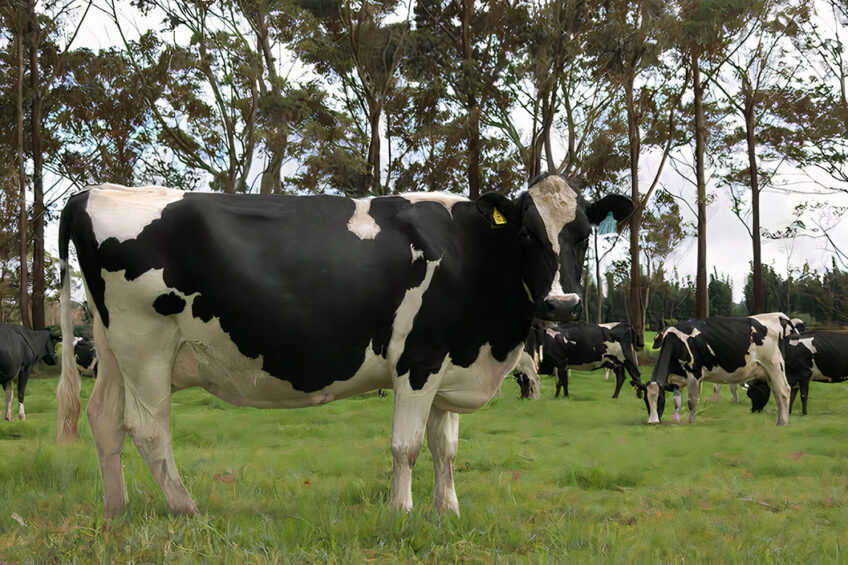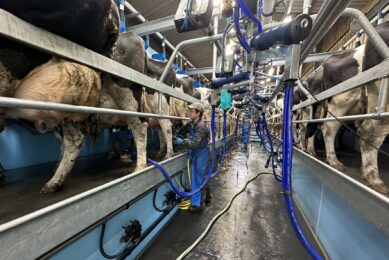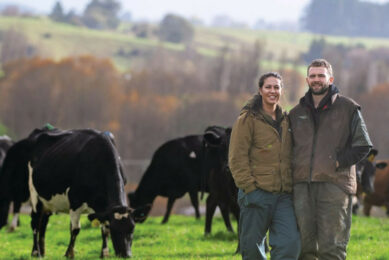New Zealand’s dairy sector in desperate need of workers

Record low unemployment combined with prolonged border closures have contributed to an estimated shortage of 4,000 to 6,000 workers on dairy farms in New Zealand. More international workers are critical to keep dairy farms running.
Sustained advocacy from the dairy sector has recently helped secure 500 more international workers to help on dairy farms. However, the government’s border class exceptions still fall short of the sector’s huge worker shortage, DairyNZ emphasises.
With the new number of dairy workers allowed into New Zealand, 800 international staff will be able to enter New Zealand to work on dairy farms. A limited number of dairy workers may be eligible to enter New Zealand under other criteria. But DairyNZ executive, Dr Tim Mackle, says farmers remain under huge pressure due to workforce shortages.
The organisation has pushed for 1,500 international dairy workers into the country in time for the 2022 dairy season on 1 June. “We made it clear to the government that the 300 dairy border class exception workers previously approved was nowhere near enough to meet the demands on-farm and reduce the current high levels of farmer stress,” Mackle explains.
“The government’s decision to increase the number of international workers by 500 is a step in the right direction to reduce the pressure on farm teams. We will continue to advocate for more to be allowed into New Zealand to help address the significant staff shortage.”
Steps to make dairy more attractive
DairyNZ has also launched a campaign geared at connecting dairy farmers and New Zealanders. The aim is to invite New Zealanders to join a dairy job. “We encourage Kiwis to join our sector and farmers have been taking a range of steps to make dairy farming more attractive to staff. However, in such a tight labour market, the contribution international staff make to keep farms running is critical,” Mackle says.
New Zealand had very low unemployment and it is not easy to persuade people to relocate to the dairy sector. Farmer Mike Butterick from Wairarapa told local media that although the extra workers in farming are a positive change, it is ‘too little too late’. “People are desperate. The harsh reality is we just cannot find the people domestically.”
General manager of ASB rural banking, Ben Speedy, underlines that opening up the borders to more workers was long overdue. “I was recently speaking to a dairy farmer in Horowhenua and he was commenting that, given the labour challenges, he was torn over whether to expand the farm or accelerate debt repayment to be in a better position to capitalise on future off-farm investments. These are everyday conversations right now.”
Farmer confidence
Federated Farmers immigration spokesperson, Chris Lewis, says many dairy farms are desperate to get teams back up to strength prior to calving. Federated Farmers has worked with the Ministry for Social Development to attract more than 525 people from New Zealand to work in the sector.
“If we want Kiwis to see an attractive future in the industry and to stop burning out our existing workers, we need the right number of people to staff our farms,” Lewis says. “Every employer wants to offer a favourable work roster and more days off, but without enough people to employ, this isn’t possible.”
Farmer confidence is the lowest it has been since Federated Farmers began surveys in 2009, the latest January survey results show. The survey pinpoints the sector’s struggle to fill workforce gaps as a huge issue, with nearly half of respondents stating it was harder to recruit skilled and motivated staff.
“We should all be pleased unemployment levels are so low in New Zealand given assaults on our economy from all sides,” Federated Farmers’ president, Andrew Hoggard, says. “But this dire farm recruitment situation underlines why we continue to advocate to government for additional workers – especially in dairy – to cross our borders.”
According to analysts of the bank ANZ, operating a dairy farm in New Zealand is becoming increasingly complex. Regulations are tightening and compliance is becoming more complicated and time-consuming. Costs are also rising. On top of that, labour has become increasingly difficult to source.










